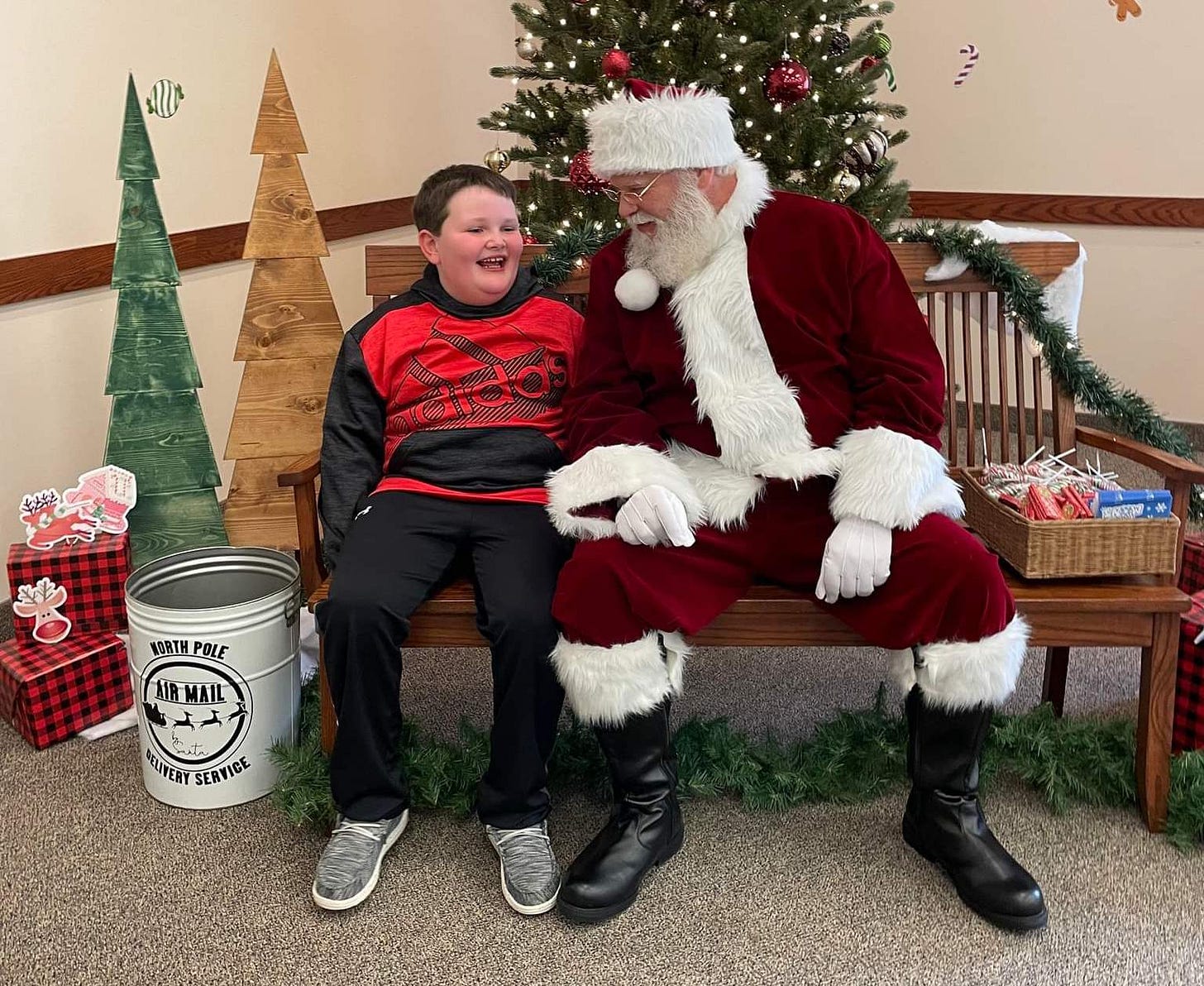Santa’s spirituality: Interview with a Santa Claus
'I think my faith drives how I approach it. I really try, anytime I have an opportunity, to kind of evangelize through Santa.'

Darin Ries is a life-long Catholic living near Fargo, North Dakota. He’s a father of nine children, ranging in age from 21 years to 10 months old.
He’s a big guy, with a big beard. He could almost pass as Santa, except that his beard is red.
But last year, around Thanksgiving, a strange thing began to happen. Darin’s beard started to change.
Darin is only …
